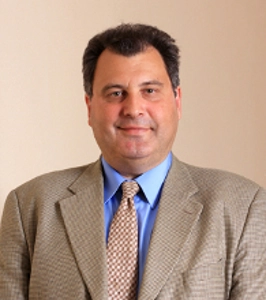
© AsteelFlash
Electronics Production |
Interview: AsteelFlash COO Georges Garic
Executive VP for Asteelflash Group, Georges Garic, talked to us about standardization, the company's new plant in Langom and what they are up to in North Africa.
AsteelFlash is growing both in revenue and physical size. In June this year the company bought a factory in Langom, Western France, adding to its facilities already spread across four different continents.
Recently the company announced an initiative which COO Georges Garic hopes will create some synergy across their global operations and facilities. It's based on five pillars (Quality, Human Resources, Lean Manufacturing, Technology and Design and Supply Chain) and, according to the company, promotes customer quality and manufacturing excellence.
Below is an edited transcript of our discussion with Georges.
Evertiq: Have there been things that you've identified as a company that you could change already?
Georges Garic: Of course. We have really based this in, number one, the quality. We want a zero defect approach and this is very, very important to us. Number two, it's a basic question of what can I improve today? And, what did I approve today? So this is the change in attitude.
After number one, it's how we are managing the people. How do we listen? How do we teach and how do we support and how do we guide?
All this of course is linked to standardization because, you know, we are in an unique industry. (It's) very complex and (has) a lot of issues. If we don't manage correctly the reference points for the what we call the standard, you can have a mess. You can have a little bit of bad quality, you are not delivering on the right time or don't deliver what the customer is expecting.
So we are really standardizing the processes in order to be able to capitalize and not to recreate the wheel every time.We want to put something which is repeatable and efficient and scalable and this is why I would say the system we are implementing, this is going to be one of the main focus of the beginning and of course all that will be covered by some directives and policies which will be at a world wide level.
We are implementing a 5S program everywhere in the group and, OK, maybe some people say ”5S, it's an old concept”. Of course it's a very old concept. But how many companies have the 5s in their DNA? I don't think there are so many. When we speak about zero defect, what do we mean by zero defect? Are we able to stop the line when we have a defect? That's what I say, we are defining some of these fundamentals.
E: Your company purchased a manufacturing plant in Langon, Western France, earlier this year from TES Electronics, close to your Redon facility. How is the integration of those two facilities proceeding?
GG: We are finalizing phase one, which is the integration of Langon within the group and this will be done for the end of this year.
What we can say, for the time being, is it's a success story because it was a company that was in a difficult financial situation, we turned that around. We fixed some fundamentals. We are back on the market with the customers because they also wanted to see how we are able to turn around the situation. So phase one is progressing as planned.
In the phase two, and this is something now we are making a study (of), is how we can create more synergies between the factories. The plan will be finalized by the end of this year and it will be also, I would say, a roll out for next year. We will try and integrate that into the budget.
But it's clear that's there is a lot of synergies, (the factories) are about ten or twelve miles away.
To give you one basic example - TES was a little bit lagging behind in some investments because they were short and it's clear that we are using some of the capacity that we have in the other factory in order to be able to improve the quality.
E: What about the 191 employees, are they still there?
GG:Yeah, they are still all working, of course yes. Our strategy is really to grow the revenue and so the strategy for the time being is what we have done everywhere.
It was a little bit difficult at the beginning, trying to understand what the major issues are. But I would say today this is another stage and the next steps is to reinforce the synergies between the two facilities.
E: You have facilities in Tunisia – is there a developing demand for your services in Africa or are these plants serving mostly European customers?
GG: The biggest part of the business there is really for European customers. We have some European customers who are also in Africa and we are delivering what they need for their own facilities in Africa. But this is the smallest part of the revenue – I don't have the numbers – but of don't think it is above 10 percent or maybe 15 percent.
E: Do you have plans for further acquisitions?
GG: Yes of course yes. It's clear that our company is growing with acquisition but even with organic growth. It's something that we are always open for, it's not against our strategy. But it's clear, I don't think that you can only build a company by acquisitions.
